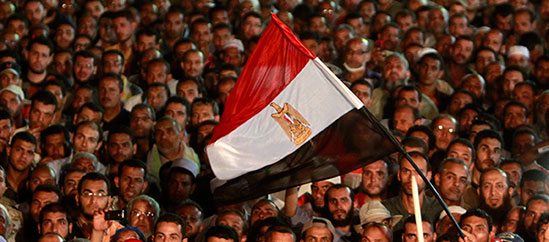Press Freedom at Risk in Egypt
Hopes for press freedom were high after the 2011 revolution ousted Hosni Mubarak, led to an explosion of private media outlets, and set the country on a path to a landmark presidential election. But more than two years later, a deeply polarized Egyptian press has been battered by an array of repressive tactics, from the legal and physical intimidation of Mohamed Morsi’s tenure to the wide censorship of the new military-backed government. A CPJ special report by Sherif Mansour with reporting by Shaimaa Abu Elkhir from Cairo

Published August 14, 2013
TABLE OF CONTENTS
Mohamed Morsi and his supporters pushed through a repressive constitution, used politicized regulations, pursued retaliatory criminal cases, and employed rhetorical and physical intimidation of critics. This intolerance of dissent helped lead to the Morsi government’s downfall.
The Killing of Al-Hosseiny Abou Deif
The military shut down pro-Morsi news media and obstructed coverage supportive of the Muslim Brotherhood and the toppled president. If the repression thus far has been aimed at one segment of the news media, there are ominous signs for the press across the political spectrum.
NGO Case Criminalizes Human Rights Work
By Jean-Paul Marthoz
CPJ’s recommendations to Egyptian authorities and the international community.
In other languages: العربية
In print: Download the pdf
About the Author and Contributors
PHOTO: A July protest in Cairo. (Reuters/Mohamed Abd El Ghany)